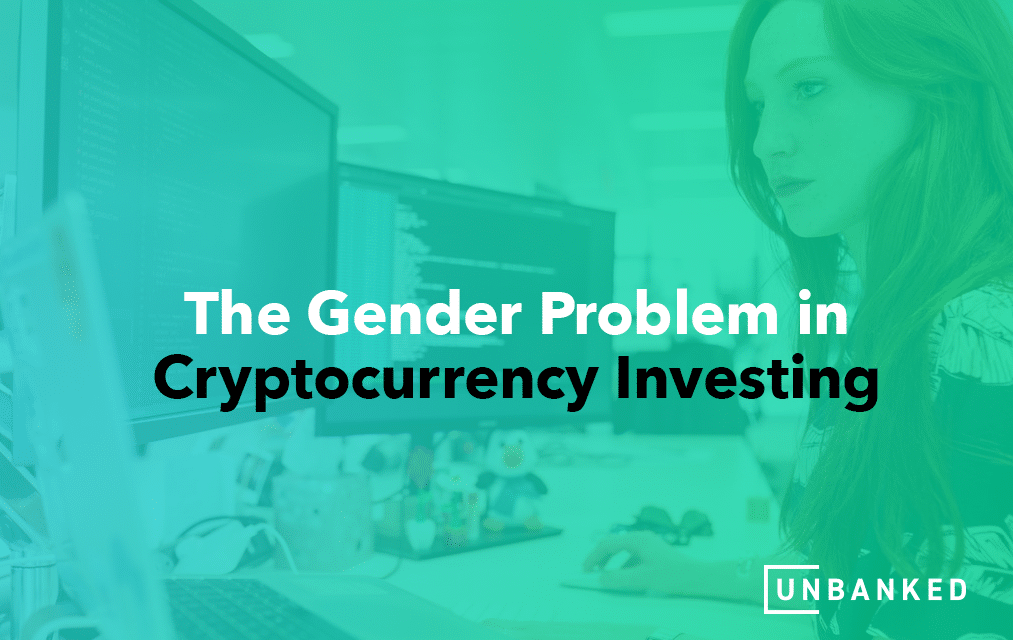Cryptocurrency faces the same problem that has crippled the FinTech industry for decades—the gender problem. CNBC and Acorns Invest in You: Next Gen Investor survey conducted in partnership with Momentive (a company previously known as SurveyMonkey) revealed that twice as many men invest in cryptocurrency (16% men vs 7% women). This data aligns with the historic disparity between men and women in the world of traditional investment. According to the survey, the gender disparity in crypto either exceeds or matches the gender gaps that have plagued traditional investing vehicles: mutual funds (30% men and 20% women), exchange-traded funds (14% men and 7% women), bonds (14% men and 11% women), individual stocks (40% men and 24% women), and real estate (36% men and 30% women).
Cryptocurrency entered the world with the promise of democratization of finance. However, it seems that it has not been able to break the gender barrier. On the other hand, it is interesting to note that it has somehow leveled the playing field by race. This means that almost all races are equally likely to invest and own cryptocurrency. However, black women face greater barriers to investment in general and they are much less likely to invest in cryptocurrency. For instance, 19% of cryptocurrency investors are white women while only 4% are black women. Women of all races say that nobody has ever taught them about investing (around 28% of women) but this number is higher for black and Hispanic women. This intersection of race and gender seems to repeat the same loop of exclusion of black women from the investment industry.
It is a Bro’s World
Cryptocurrency, like other vehicles of investment, has been criticized for being a “bro’s world”—a culture that excludes and threatens women who enter the new world of investment. It is similar to mainstream investments with a man explaining the nuances of the currency in their YouTube videos and Twitter posts. It has been well-researched that the technology industry suffers from a severe gender imbalance and blockchain technologies are no different. A 2018 Harvard Review Survey revealed that less than 10% of all senior positions in venture capital and private equity are occupied by women. Crypto doesn’t do any better with just 14% of women engaging within the Bitcoin community. The worst outcome of this is that women are not able to reap the benefits of blockchain technologies.
Security Reasons
Another reason that is attributed to the lack of women in the crypto market is security concerns. There is an increased risk of hacks, loss, and volatility as compared to other investments, and women, in general, are a little more conservative with their finances because it’s riskier and less predictable. There is a culture of women that are not addressed in this world of investment and who don’t feel comfortable enough with the high-risk environment to get involved.
Is the Industry Plain Sexist?
Gender discrimination and sexism have always been one of the biggest issues in the FinTech sector. The gender ratio in cryptocurrency networking events is skewed just like other events in the tech and finance industry. The 2021 Bitcoin Conference had five male speakers and just one female speaker. Even worse was the North American Bitcoin Conference in 2018 that had 85 male speakers and just three women speakers. This disparity was aggravated by the fact that the after-party was hosted at a Miami strip club, a venue that made the few women present even more uncomfortable. People didn’t even know that it was a strip club until they arrived. Some felt so uncomfortable that they left immediately.
Another example of rampant sexism in this industry is that of DateCoin. It is a dating service that uses artificial intelligence algorithms based on blockchain use. It launched an advertisement saying “Girls and Money” with a woman seductively posing on a couch with the words “Touch my ICO” written underneath. This kind of sexist environment makes women in this industry feel not only uncomfortable but also unsafe.
Hopes and Expectations
Many scholars talk about a factor of inclusivity in the crypto industry as the users are not obligated to reveal their name or gender. It has the potential of becoming more gender-equal than other tech industries. Even the developer of Bitcoin, Satoshi Nakamoto, is gender-anonymous, which led to a movement on Twitter hashtagged #SatoshiIsFemale that encouraged women to enter and dominate the crypto industry. Due to several anonymous users in the crypto industry, it is also hard to estimate how good or bad the gender balance is. Besides that, crypto is still very new and has a smaller investor base, and for the data to be reflective for the entire population, it might take several more years.
Despite the gender imbalance in the industry, there are women working to make it more representative. Women crypto enthusiasts like Girl Gone Crypto and CryptoWendyO are becoming more and more visible on several social media platforms. They represent a unique female voice in the blockchain industry. These women in crypto have called out the crypto industry for being too complex for a layman to understand. Women being better mass communicators can help the industry grow and expand. With more female voices, the industry will undoubtedly expand into new horizons and gain mass popularity and support. This makes it even more important for the industry to get rid of its “bro culture” and embrace women with open arms.
Unbanked, a pioneer in crypto investing, believes in the decentralization and democratization of finance by making services and products available to those who were historically excluded by the traditional banking system. This includes underserved people – women of color and other historically marginalized populations. Our aim is to provide people with access and control over their money by offering affordable financial services. We believe in creating an inclusive environment in which everyone has the opportunity to invest and trade.





